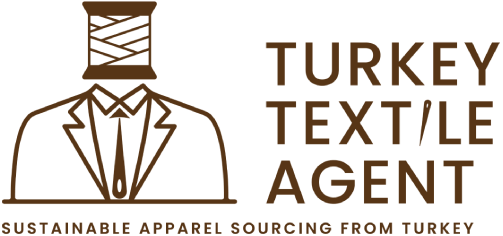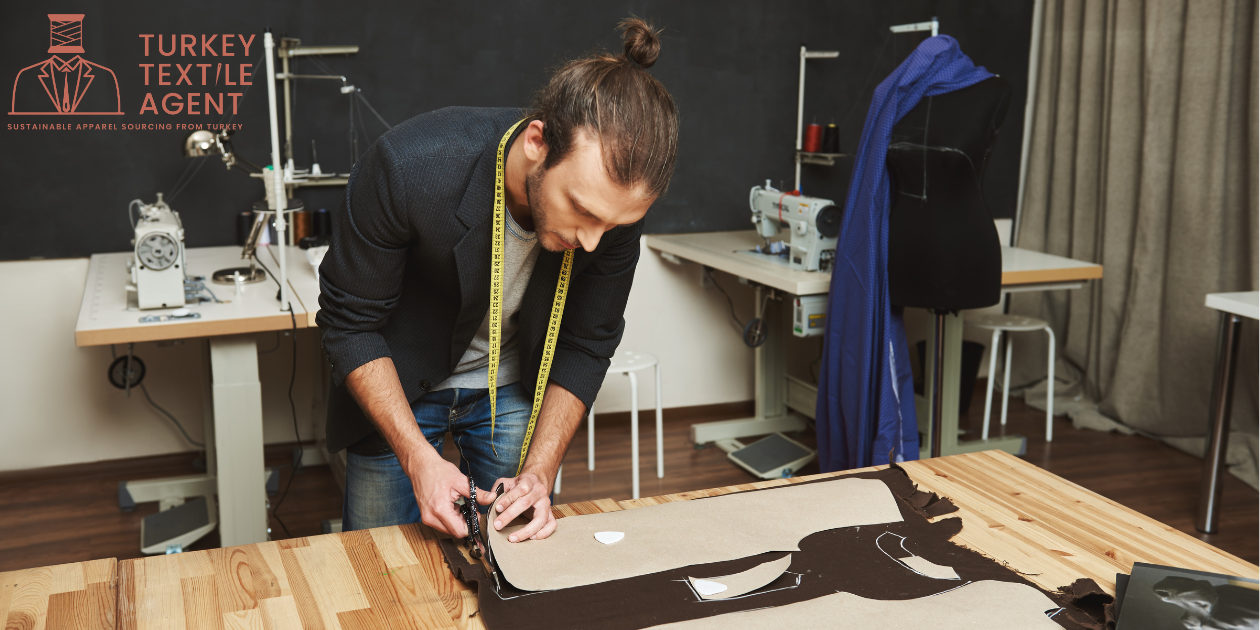The world of Direct-to-Consumer (DTC) fashion brands is fast-paced and ever-evolving. To succeed, these brands must leverage manufacturing solutions that offer efficiency, scalability, and quality. Turkish manufacturing for DTC fashion brands stands as one of the most effective ways to achieve these objectives. In this article, we will explore how Turkish manufacturing can propel your DTC fashion brand to new heights, providing you with the tools needed to stay ahead of the competition.
Understanding the Power of Turkish Manufacturing in Fashion
Turkey has become a key player in the global fashion manufacturing industry, particularly for DTC brands looking for reliable, cost-effective, and high-quality production solutions. With a rich history in textiles, Turkey has built a reputation for blending traditional craftsmanship with modern manufacturing techniques.
Why Turkey?
Turkey’s strategic location between Europe and Asia provides numerous advantages for DTC fashion brands. The country’s textile industry is well-established, with advanced technologies and skilled labor that produce high-quality garments at competitive prices. In fact, Turkish manufacturing is known for its quick turnaround times, low production costs, and exceptional product quality, making it a go-to choice for many fashion labels.
The Benefits of Turkish Manufacturing for DTC Fashion Brands

1. Cost-Effectiveness Without Compromising Quality
One of the most attractive reasons for DTC fashion brands to consider Turkish manufacturing is the balance between affordable pricing and superior quality. Turkey offers lower labor costs than many Western countries, but the country maintains high standards of craftsmanship and production. By partnering with Turkish manufacturers, DTC brands can significantly reduce production costs while ensuring that their products meet high-quality standards.
Moreover, Turkish manufacturers are well-equipped to handle a wide range of products, from luxury items to fast-fashion collections, ensuring that brands can scale up production as needed without sacrificing quality.
2. Fast Turnaround Time and Flexible Lead Times
For DTC brands, agility is key. The ability to quickly pivot production to meet demand is critical in maintaining customer satisfaction and capitalizing on fast-moving fashion trends. Turkish manufacturing offers significantly faster turnaround times compared to many other countries. With modern infrastructure, well-established logistics networks, and local supply chains, Turkish manufacturers can handle large-scale orders efficiently and meet tight deadlines, ensuring your brand stays ahead of the curve.
Additionally, Turkish manufacturers are known for their flexible lead times, enabling DTC brands to make quick adjustments based on seasonal demands, market trends, or unexpected changes in order volume.
3. High-Quality Fabrics and Materials
Turkey’s textile industry is renowned for its high-quality fabrics and materials. From cotton and wool to synthetic fibers and innovative blends, Turkish manufacturers use top-notch materials that are both durable and comfortable. This focus on quality ensures that DTC brands can offer premium products to their customers, which is essential for building trust and loyalty in today’s competitive market.
Whether you’re producing high-end fashion or trendy streetwear, Turkey’s diverse fabric offerings enable brands to source materials that align with their design visions while maintaining product integrity.
4. Sustainable Manufacturing Practices
Sustainability is a growing concern in the fashion industry, and consumers are increasingly seeking brands that prioritize eco-friendly practices. Turkish manufacturers are embracing sustainable production techniques and eco-friendly materials, making it easier for DTC brands to align with their sustainability goals.
Many Turkish manufacturers are certified with internationally recognized eco-labels, such as OEKO-TEX and Global Organic Textile Standard (GOTS), ensuring that their production processes are environmentally friendly. By choosing Turkish manufacturing for DTC fashion brands, you can meet the rising consumer demand for sustainable fashion and position your brand as environmentally responsible.
5. Skilled Labor and Expertise
Turkey is home to a skilled and experienced workforce in the fashion and textile industries. The country has produced generations of artisans and workers who possess a deep understanding of fashion production techniques, quality control, and innovation. As a result, DTC brands partnering with Turkish manufacturers benefit from high levels of expertise, ensuring that every piece is crafted with precision and attention to detail.
From pattern making to finishing touches, Turkish manufacturers have the know-how to bring complex designs to life, ensuring your products exceed expectations.
How Turkish Manufacturing Supports DTC Brand Growth
DTC brands rely on manufacturing partners who not only provide high-quality products but also help scale their operations efficiently. Here’s how Turkish manufacturing can directly contribute to the growth of your DTC fashion brand:
1. Scaling Your Operations with Speed and Efficiency
As your brand grows, so do the challenges of meeting demand without compromising on quality. Turkish manufacturing offers the ability to scale production quickly, with streamlined processes that enhance efficiency at every stage. Whether you need to increase production for a seasonal collection or expand your product line, Turkish manufacturers provide the flexibility needed to grow without the headaches typically associated with scaling operations.
2. Competitive Advantage in Global Markets
In today’s digital age, DTC brands must compete on a global scale. Turkish manufacturing allows brands to access international markets more effectively by providing cost-effective production while maintaining the quality required for global distribution. Whether you’re selling to customers in the United States, Europe, or Asia, Turkish manufacturers can produce garments that meet international standards, giving your brand a competitive edge in a crowded marketplace.
3. Enhancing Customer Satisfaction with Consistent Quality
DTC brands thrive on direct relationships with their customers, and product quality is at the heart of these relationships. By partnering with Turkish manufacturers, brands can maintain consistency in product quality across all collections, ensuring that every piece meets the expectations of their customers. Consistent quality builds trust and loyalty, two key ingredients for long-term success in the fashion industry.
4. Minimizing Risks and Increasing Profitability
When manufacturing overseas, risk management is critical. Turkey’s proximity to Europe, coupled with its robust infrastructure, allows for more predictable logistics and fewer delays in transportation. This reduced risk leads to more reliable inventory management, helping DTC brands maintain optimal stock levels and meet customer demand without overstocking or understocking.
Moreover, the cost savings associated with Turkish manufacturing can result in higher profit margins, enabling brands to reinvest in marketing, customer experience, and other areas that drive growth.
Navigating Challenges in Turkish Manufacturing
While Turkish manufacturing offers numerous advantages, it’s important for DTC brands to be mindful of potential challenges. One such challenge is the need for effective communication and strong partnerships with manufacturers. Language barriers and differences in business culture can occasionally pose hurdles, so it’s essential to establish clear expectations, timelines, and quality standards from the outset.
Additionally, staying updated on local regulations, tariffs, and international trade agreements is crucial for maintaining smooth operations. DTC brands should work with reliable suppliers or third-party consultants to navigate these complexities effectively.
Choosing the Right Turkish Manufacturer for Your DTC Fashion Brand
Selecting the right manufacturing partner is a critical decision for DTC fashion brands. Here are some factors to consider when choosing a Turkish manufacturer:
- Experience and Specialization: Look for manufacturers with experience in the specific type of fashion you produce, whether it’s ready-to-wear, luxury, or activewear.
- Certifications and Sustainability: Choose manufacturers who are certified for sustainability and ethical practices to align with your brand values.
- Production Capacity and Flexibility: Ensure the manufacturer can scale production as your brand grows and adapt to market fluctuations.
- Quality Control and Communication: Prioritize manufacturers with strong quality control systems and clear communication channels to ensure smooth collaboration.

By considering these factors, DTC brands can build strong, lasting relationships with their Turkish manufacturing partners, driving success and growth in the competitive fashion market.
Conclusion
In today’s competitive DTC fashion landscape, partnering with the right manufacturing solution is paramount for success. Turkish manufacturing for DTC fashion brands offers a unique combination of cost-effectiveness, speed, quality, and sustainability, making it the ideal choice for brands looking to scale quickly while maintaining the highest production standards. By leveraging Turkey’s rich textile heritage, modern infrastructure, and skilled labor force, DTC fashion brands can accelerate their growth and stay ahead of industry trends.
For DTC fashion brands seeking a reliable and efficient manufacturing solution, Turkey stands as an invaluable partner in achieving success and maintaining a competitive edge in the global market.

